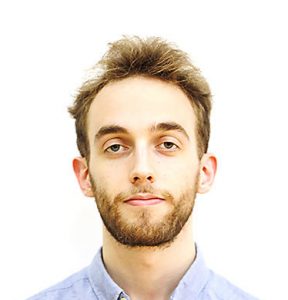Jordan Jackson received his BA and MA in Philosophy from the University of Cincinnati, and a second MA in Chinese Philosophy from Huazhong University of Science and Technology in Wuhan. He is currently working as a teacher in Wuhan while he prepares to pursue a PhD in China.
Wuwei and Radical Action
Traveling home for Christmas holiday, on a flight from Shanghai to Detroit, I had the chance to watch The End of the Tour (James Ponsoldt, 2014), a film centered around David Foster Wallace (played by Jason Segel) and a Rolling Stones journalist (Jesse Eisenberg) on the last leg of the Infinite Jest book tour. As the characters board a flight headed for Minneapolis, the character Wallace said something that struck a nerve in me. While discussing his solutions for reversing a low point in his life, Wallace describes his various strategies as, “a very American I-will-fix-this-somehow-by-taking-radical-action sort of thing.”
This description of the American problem-solving strategy helped explain an issue I had while researching for my master’s thesis. For this project I read Laozi through both primary and secondary sources and compared him to the Milesian philosophers. Many aspects of Laozi’s philosophy confused me, but his concept of wuwei, or non-action, truly baffled me. While wuwei is often used to contrast self-serving actions and desires, Laozi’s stress of the concept made wuwei seemingly unfeasible. It took Jason Segel’s dialogue for me to understand where my confusion stemmed from—the American way of tackling problems, my way of tackling problems, is by taking radical action. From a Daoist perspective it could be seen as radical self-serving action. The American perspective holds that everything is within our control and our failures are the result of a lack of action. For this reason, when faced with a problem, our only strategy is action of some kind. Living, working, and studying in China has shown me what a culture influenced by philosophical wuwei is capable of, namely allowing things to run their course. Suddenly, past advice from my Chinese friends to accept my situation and not let it influence me “deep down” had context. They weren’t telling me to simply do nothing, but rather, let things run their course and accept the way of things.
My criticism of this American approach does not come from an unwillingness to accept non-action. It comes from the fact that, as Americans, we tend to only see radical action as a solution to our problems and find no value in something that is done with no deliberate effort. The American ideal that everyone has equal opportunity has breed the perspective that the only way to deal with problems is to do something. Even radically pursuing non-action is something. This ideal, combined with a world overly self-aware of its situations and opportunities, produces a deep anxiety. Laozi’s concept of wuwei can help to alleviate this anxiety. Even if it is not fully embraced, to know at least it is an option is a powerful idea.

